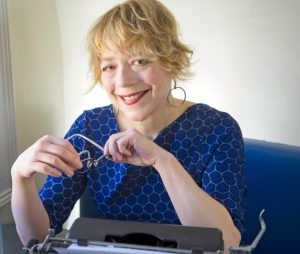How will you use what you know?
As I reflect on the milestone of earning my master’s degree, I’ve been asking myself: “How will you use what you know?”
 After receiving my Master of Arts in Mass Communication with a specialization in Public Interest Communication from the University of Florida — which I’m proud to say awarded me Graduation with Distinction honors — those words written by Wendy Wasserstein for her play The Heidi Chronicles keep rolling around in my head. Others are asking me similar questions: “What’s next?” “What did you learn?” “How has earning your degree changed how you approach your work?”
After receiving my Master of Arts in Mass Communication with a specialization in Public Interest Communication from the University of Florida — which I’m proud to say awarded me Graduation with Distinction honors — those words written by Wendy Wasserstein for her play The Heidi Chronicles keep rolling around in my head. Others are asking me similar questions: “What’s next?” “What did you learn?” “How has earning your degree changed how you approach your work?”
That last question is as intriguing as Wasserstein’s. And it led me to remember another line from The Heidi Chronicles, in which I played Heidi many years ago: “All people deserve to fulfill their potential.” I could not agree more — and it’s a good way to describe my intention for how I will use what I know.
This isn’t to say I wasn’t fulfilling my potential. I already specialized in Public Interest Communication for clients doing meaningful work, such as the United Nations, the American Foundation for the Blind, Spitfire Strategies, the W.K. Kellogg Foundation and many more over the years. As one colleague and friend told me, “You’re a Swiss Army knife,” which was his creative way of saying I am a highly versatile communicator. My work includes strategic storytelling, messaging strategy and execution, content creation such as blog posts and human-interest profiles, issue campaign development and delivery, writing and speaker coaching, editing and more.
I enrolled in the Public Interest Communication program’s inaugural semester in 2019 and it took me until 2023 to earn my degree. Because I work full time as a consultant, I mostly took one course per semester. I learned that many other returning students did the same. And I discovered that my years of professional and personal experience enriched my learning.
Without question, the program expanded my expertise. I not only learned more about topics I’m familiar with, such as storytelling and creating an issue advocacy campaign. I also dove into new realms I’d heard about, such as value propositions and design thinking, but had never explored. Particularly in the latter course, I learned a great deal about myself, too.
Because of that course, I now ask myself periodically, “How’s it going?” It’s a strategy taken from the book Designing Your Life: How to Build a Well-Lived, Joyful Life that was engagingly taught, and I still periodically check in on my life. Is it going in the direction I want it to? Am I spending more time on things I love and less time on things I don’t? The answer is generally yes. And when it’s not, I pause to redesign my life accordingly.
It’s intriguing that the willingness to change course in my own life — to try something new, to ditch something old or improve on it — is also serving my work and my clients well. Of course, I now have master’s-level abilities in my field. But the way my work has transformed is about more than simply sharpening my skills.
I look at my work differently now. I recognize opportunities to recommend unique or better approaches. I use my diverse creative skills to imagine and create more impactful communications. I’m exploring new ways to work, not just with my clients but in collaboration with colleagues. I’m discovering how to be more efficient and productive. I still work hard — perhaps even harder sometimes, because jobs that use my thought leadership skills are more complex — but I’m definitely working smarter.
I was already fulfilling my potential. But as I move forward after graduation I know that potential is greater than it was. I can — and am eager to — raise the level of the potential I intend to fulfill. That means stretching myself, accepting sometimes daunting challenges and meeting them. That means saying “yes” to projects that feed my soul and, whenever possible, saying “no” to those that don’t.
Most important, I’m more inspired than ever to make a difference in the world — to make sure everyone has an opportunity to thrive. After all, everyone deserves to fulfill their potential. And doing everything I can to make that possible for myself and others is the answer to the big question: How will you use what you know?

 Of course, there’s
Of course, there’s  When working in public interest communication, issue advocacy or social change communication, nothing is more powerful than centering stories around the voices of those most impacted by an issue. If someone is incarcerated, let them speak for themselves. If someone wants to share their journey as a transgender person, lift up their voice and stay out of the way, something I worked hard to do in my
When working in public interest communication, issue advocacy or social change communication, nothing is more powerful than centering stories around the voices of those most impacted by an issue. If someone is incarcerated, let them speak for themselves. If someone wants to share their journey as a transgender person, lift up their voice and stay out of the way, something I worked hard to do in my 



